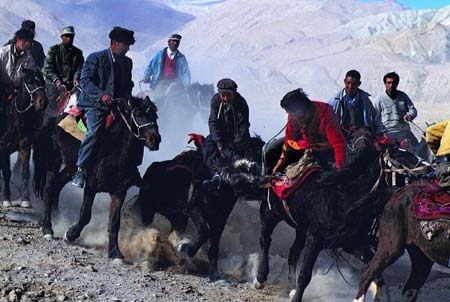I-7 Question: China is a multiethnic country. Against the backdrop of reform and opening up and the socialist market economy, how does it unite its 56 ethnic groups?
A: As China is a multiethnic country, the Chinese Government has formulated a good ethnic policy based on the equality between different ethnic groups. Regional ethnic autonomy, one of China's three basic political systems, summarizes its experience in dealing with the ethnic issue. China has five ethnic autonomous regions---Tibet Autonomous Region, Xinjiang Uygur Autonomous Region, Guangxi Zhuang Autonomous Region, Inner Mongolia Autonomous Region and Ningxia Hui Autonomous Region, 30 ethnic autonomous prefectures and 120 ethnic autonomous counties for its 55 minority ethnic groups. These areas are home to 70 percent of the total ethnic minority population in China and account for 64 percent of its total land area. Regional ethnic autonomy is supported and welcomed by the ethnic minorities because it has not only satisfied their aspirations to be masters of their own affairs, but also echoes the fact that different ethnic groups have lived side by side in China since antiquity.
Another important policy of the Chinese Government is to assist ethnic minorities with economic, cultural, social and educational development. As far as economic development is concerned, the government always takes into consideration the characteristics and needs of the areas where ethnic autonomy is practiced when formulating plans for national economic and social development. It has increased its input into these areas by regular payment transfers, payment transfers for designated purposes and special payment transfers in favor of ethnic minorities. It has put poverty reduction and development of the ethnic minority-populated areas at the top of the national poverty reduction agenda. Thanks to these efforts, the gap between these areas and the more developed regions is narrowing. In regard to the protection and development of ethnic cultures, the Chinese Government encourages ethnic minorities to develop their distinctive cultures. It respects the ethnic minorities'freedoms to develop and use their languages and scripts, to preserve and reform their customs and religious beliefs. Today, a new type of relationship characterized by equality, unity and mutual assistance has been established between different ethnic groups in China.

(China.org.cn)